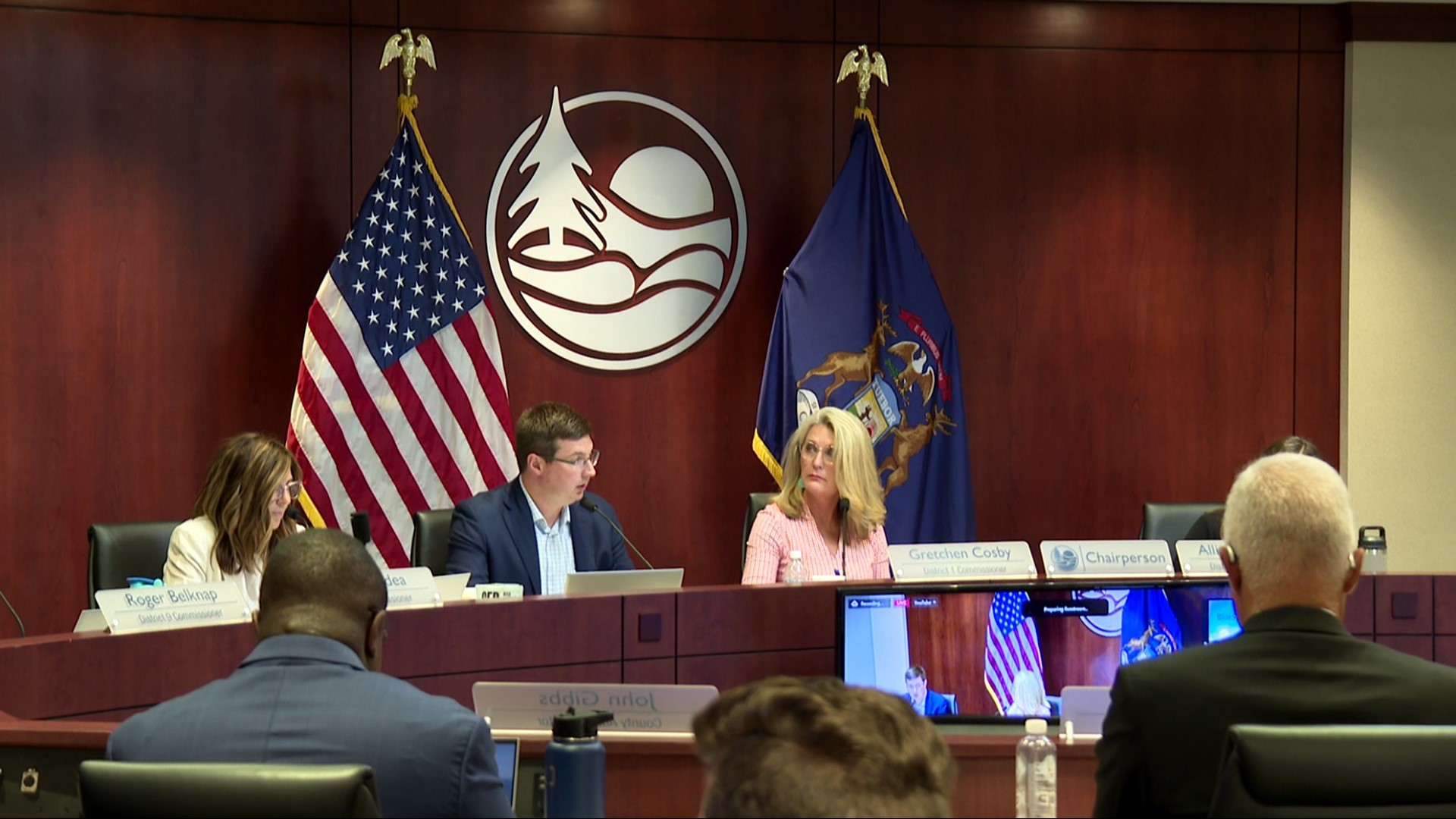OTTAWA COUNTY, Mich. — While last year's budget feuds between the Ottawa County Board of Commissioners and county health leadership may have come to an end, funds for the county's Department of Public Health were once again in the spotlight at the board meeting on Tuesday.
In a meeting that handled multiple matters surrounding the county's finances, the board voted to move a combined nearly $2.5 million from the Department of Public Health and child care funds to the county's general fund.
The dollars that were moved were unrestricted excess funds that had not been used thus far.
Because requests need to be made for departments to access money from the general fund, the move is seen by some as a way to increase transparency and good accounting.
"I think it's really important for transparency that we go ahead and proceed on these two amounts that have been identified as being much higher than they should be sitting in a fund so that, when it comes to budget season, it's very clear what the county is doing and that the public can understand that," the board's Vice Chair Sylvia Rhodea said.
Others feel the move may make it harder for the county's Department of Public Health to respond to emergencies without more immediate access to the money.
Deputy Health Officer Marcia Mansaray, who also spoke during the meeting, told 13 ON YOUR SIDE that hers was more of a neutral response, but not without concerns.
"In the past, it's been a comfort to have," Mansaray said, referring to the unrestricted excess funds.
Given past interactions with the board regarding requests, Mansaray was also concerned that getting requests approved may be difficult.
"I'm concerned that, when we need it, we might not be able to get access no matter where it is," Mansaray said.
Board Chairman Joe Moss asserted, however, that the county is in a good position to respond to any potential emergencies.
"I guess it's worth mentioning - there's also a very rigorous and extensive emergency planning set up so if there are any emergencies, the county is ready to respond and does so whenever is necessary like a week ago or a week and a half ago," Moss said.
But some also felt a new policy for excess department funds should be made, and that this transfer shouldn't have happened until it was in place.
"I understand that we can respond," commissioner Roger Bergman said. "But, it seems to me that we're just putting the cart before the horse. And I don't see any reason why we can't wait with this allocation until we come up with a policy."
Other commissioners, however, felt differently.
"I think we're very capable of doing two things at one time," Rhodea said. "We can both work on transferring those funds and work on a policy."
Further concerns arose pertaining to how the move could impact ongoing union negotiations at the county.
Tom Nieboer, an environmental health specialist for the health department and a member of the negotiation team for health workers involved in the talks, believes the move was meant to hinder the negotiations.
"Many employees have left the county and it is difficult to find replacements for the health department because of the hostile work environment your rhetoric and actions have created," Nieboer said. "This has hindered our ability to effectively serve this community."
The county's fiscal services director said an updated policy regarding this subject matter is now in the works.

